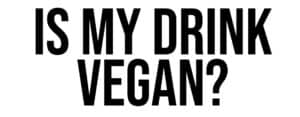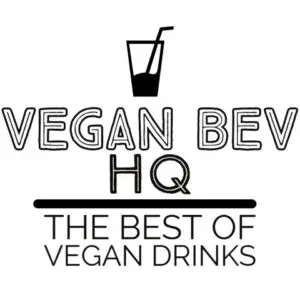What Beer is not vegan? In this article, instead of listing every beer in existence that is vegan, I thought it would be more helpful to create a list of things in beer that you just need to avoid (because they are not vegan). You see sometimes, being vegan, I find it more helpful to know what isn’t vegan than having to know what is vegan. It just makes shopping for food items a little bit easier because you know exactly what to avoid. For example, “Cheese” – is not vegan, and “Milk” – is not vegan. Okay, those are both silly and overly simplified examples. But, what about the situation where something can be both vegan and not vegan? No, I am not talking about “Schrodinger’s cat”, but I am talking about things like Beer, which can be vegan and also not vegan (although unlike Schrodinger’s Cat at least beer can’t be both at the same time – gosh, that would make things complicated).
First, is Beer Vegan?
Beer for the most part is vegan. In fact, beer is the opposite of the wine industry. Most wines are not vegan, whereas most beers are vegan. This is true for most of the mainstream beers. If you want to learn more about the details of how beer is made and whether it is vegan, you can read my post: Is Beer Vegan? Introducing the Secret to Finding Out.
What Beer Is Not Vegan?
As a general rule, the beers that are not vegan are those that are filtered with non-vegan fining agents (most commonly Isinglass) as well as those that have non-vegan ingredients added. Cask ales as well as English beers are often filtered with Isinglass and are therefore not vegan. The main non-vegan ingredients that are added to beer are lactose (usually found in milk stouts and sours) and honey.
What Beer is Not Vegan – Summary Table
| Non-Vegan Fining Agents (Usually Isinglass) | Non-Vegan Ingredients Added to Beer |
|---|---|
| Cask Ales (e.g. Fuller’s Casks use Isinglass) | Honey – added to Honey Beers, Mead and Braggot |
| English Breweries often use Isinglass e.g. Coors Light UK and Foster’s UK | Lactose – mainly found in Milk Stouts and Sours. Chocolate Stouts can often contain lactose and Irish, Imperial, and Oatmeal Stouts can occasionally contain lactose. |
| Lactose / dairy can sometimes be found in beers flavored with pumpkin, caramel, coffee, cream, or ice cream | |
| Shellfish – Clamato beers are not vegan | |
| Oysters – Oyster Stouts are not vegan | |
| Bacon – Bacon flavored beers are not always vegan |
What Beer is Not Vegan – Things To Look Out For
If you have read my previous post on whether Beer is Vegan (Is Beer Vegan? Introducing the Secret to Finding Out), you will have discovered that a lot of beers are vegan. This is because, unlike wines (most of which are not vegan), most beers are not filtered using a fining agent. Most bigger brewers will instead filter their beer using polishing filtration by chilling the beer overnight to separate the “chill haze” and then using pressure to filter the beer from one keg to another.
Guinness, for example, recently changed from isinglass to this filtration process – making their Guinness Draught, Guinness Extra Stout, and Guinness Foreign Extra Stout vegan. You can buy bottles of Guinness Extra Stout from Amazon here. This kind of setup is, however, expensive so some brewers still use fining agents – some of which are not vegan. Also, hazy beers are becoming more popular, leading a lot of brewers to focus less on fining and filtering their beers.
Two Things to Look Out For
As mentioned above, smaller brewers and particularly English brewers sometimes use non-vegan fining agents to filter their beer (most commonly Isinglass from fish bladders but also sometimes gelatin). This means that not all beers are vegan. In particular, you need to look out for two things when picking your beer:
- As mentioned above, smaller brewers and particularly English brewers can use non-vegan fining agents to filter their beer (usually isinglass from fish bladders but also sometimes gelatin); and
- Sometimes non-vegan ingredients are added to beer such as lactose, honey or even sometimes fish, oysters, or bacon (yes, oysters and bacon).
Rules of Thumb to follow for Non-Vegan Beers
In this post, I will go through some of the two general rules of thumb for picking a vegan beer as well as the types of beers to avoid. The first is how to deal with beers that contain non-vegan fining agents, and the second is beers that contain non-vegan ingredients (like bacon) added to them.
1. Beers That Use Non-Vegan Fining Agents
As explained above, the main non-vegan fining agent that is used in beer production is Isinglass (dried fish bladder). Occasionally gelatin is used but this is much rarer. I scrolled through thousands of beer listings on Barnivore.com (an amazing resource for finding out if your alcohol is vegan) and although I came across an occasional beer that used gelatin, I would say around 95% of the non-vegan fining agents I came across were Isinglass.
Beer Labeling
If you are thinking to yourself right now, “hey, what are you so worried about surely the beer bottle label will tell me everything I need to know, right?”. Er, sorry. No. That is a big negative there. You see labeling laws provide absolutely no help for consumers to work out if beer (1) has been fined, and (2) and if so, what fining agent was used. Beer producers are just not required to list ingredients on the backs of their labels. The only exceptions are beers that do not have malted barley and beer listed as low-calorie (if the beer decides to list its calorie content).
Other than this, listing ingredients is completely optional for beer producers. This even includes when allergens such as nuts, eggs, etc are used in the production.
With beer labeling laws being so, quite frankly unhelpful, how do you make sure you don’t pick up a beer which used fish bladders in its production?
How Can I Tell If My Beer Is Not Vegan Then?
Though not definitive rules, there are two things to watch out for with regard to Isinglass:
1. English Breweries
Beer is regulated more strictly in certain parts of the world than in others. For example, in Belgium and Germany, there are strict purity laws which mean beer can only be from certain ingredients. In Germany, specifically the German Purity Law (also known as Reinheitsgebot) of 1516 states that beer can only be made from these four ingredients: water, malt, hops, and yeast. No fining agents can be used in the process. This makes most German and Belgium beers vegan.
However, the same rules do not apply everywhere. In England, such purity rules do not apply. That means if you are vegan unless the brewer specifically states their beer is vegan you may be best to choose Belgium or German beers over English ones.
This truth was confirmed whilst I scrolled through the 1,000s of beer listings on Barnivore.com. I can confirm looking through these that the majority of beer that used Isinglass was from English brewers. For example, Foster’s UK (one of the mainstream larger brands) uses Isinglass. Whereas Foster’s North America and Foster’s Australia are vegan (makes no sense right).
Another example is Coors Light UK which uses Isinglass and so is not vegan, but Coors made in North America is vegan.
2. Cask Ales
Cask Ales are beers that undergoes secondary fermentation and maturity in the cask from which it is then served. The difference from other beer (keg beer), is that non-cask beer is ready for serving once placed in the keg (i.e. it is the finished beer product). Cask Ales require time to mature in the cask before serving.
The issue is that cask ales often use Isinglass. Cask ales are traditionally found in pubs and are very much an English tradition. That means if you are visiting a pub in the UK you will want to avoid the cask ales. For example, Fuller’s cask beers are not vegan as Isinglass is used – however, all bottled and kegged Fuller’s are not processed with Isinglass.
3. Non-Vegan Ingredients Added to Beer
Honey and Mead
Honey is sometimes added to beer – the good news is that often the word honey is in the beer’s name (or something implying honey such as “nectar” or “hive”) or the bottle is labeled as containing honey.
Also, if you are looking to avoid honey then you will want to avoid “Mead”. Mead is a beer-style drink made from fermenting honey. The other drink to avoid is Braggot (which is a hybrid between mead and ale), which also contains honey.
Lactose
Lactose (sugar derived from milk) is sometimes added to beer. The main beer to watch out for in this case is a milk stout which is made using lactose. Milk stouts are often called “milk stouts” and so are easy to spot.
Chocolate Stouts
Chocolate stouts can sometimes contain some form of lactose/dairy and so are not vegan (a quick browse of chocolate stouts on Barnivore.com shows around half of the chocolate stouts being vegan and around half not being vegan).
Not All Stouts Contain Dairy
Also, it is important to note that not all stouts contain dairy – dry/Irish stouts do not usually contain lactose (the most famous being Guinness – read on for more information on Guinness stouts) although occasionally they do.
Also, oatmeal stout traditionally uses oats rather than lactose which tends to make them vegan (although a few oatmeal stouts are not).
Imperial Stouts
Imperial stouts (higher ABV stouts brewed with an extra dose of grains and hops) tend to also usually be vegan. However, again this is not always the case.
Other Ingredients To Watch Out For
Dairy can also be present in other non-stout beers. Things to watch out for is any beer containing the word “cream” in the name e.g. cream ale. During my research, I also noticed the following “keywords” to watch out for as an indicator of not being vegan:
- “Coffee”: some coffee porters and coffee stouts contain lactose (although most coffee beers do not contain dairy). Another word to watch out for in the beer name is “mocha”.
- “Mocha”: like coffee, some mocha-flavored beers can contain lactose.
- “Pumpkin”: some pumpkin-flavored beers can contain lactose (although many do not).
- “Ice Cream”: any beer which is “ice cream” flavored tends to contain lactose.
Sour Beers
Most beers on the market today are “bitter” based beers, but traditional sour beers (higher acidity beers) used to dominate the market back in the day. Today Sour Beers mostly take the form of fruit beers. The problem is that sour beers usually contain lactose of some description. These beers are usually given their sour taste using lactose, lactic acid, dairy-based probiotics, or sometimes even yogurt. The word sour is almost always in the name so is easy to spot.
Oyster Stouts
I covered the presence of lactose in some stouts above, but another non-vegan ingredient that is sometimes added to stouts is…drum roll please…oyster. Yes, you heard that correctly – oysters. This one is a bit of a no-brainer, but if you see the word “oyster” in the name – not vegan.
Clamato
Traditionally a Clamato is a Mexican cocktail made from beer, tomato juice, spices, and clam juice. It is a take on a Michelada drink which is just beer, tomato juice, and spices. For example, both Budweiser Clamato Chelada and Bud Light Clamato Chelada are not vegan.
Bacon
Bacon Beer, yes it exists and no it is not vegan. Well…not always. It depends on how the bacon flavor was added to the beer. Typically, beer producers produce the flavor by drying barley used in the beer over an open flame to give the barley a smoke-infused flavor. Others will use bacon flavoring to the beer to add the smokey bacon flavor. In fact, vegan “Bacon” beers do exist – for example, Black Kite Oh, Bacon! (a Hong Kong-based brewery) is vegan-friendly for example.
However, some bacon beers will use…well bacon and so are not vegan. If in doubt always check with the brewer.

What Beer is Not Vegan – The Final Sip
What beer is not vegan – well, what exactly have we learned from this article? Well, we have learned that: (1) where a beer comes from can determine whether it is vegan or not; (2) Cask Ales should be avoided; (3) beer can contain a whole load of extra ingredients that can make it not vegan like oysters, clams, honey, cream and lactose; and (4) most importantly perhaps as a vegan you can drink some “Bacon Beers” – now if that is not an oxymoron I don’t know what is. But it is true if you can check how the “bacon” flavor was added to the beer (i.e., it should be by smoking the barley and not actual bacon) – you can have a Bacon Beer. I bet you didn’t think you would read that today, did you?

…now you know.
Beverage makers may change ingredients and/or manufacturing processes. Always double-check ingredients before purchasing any beverages.
Please Drink Responsibly.
Like What You Are Reading
Need to know more? Think your favorite beer or wine is vegan? How about your favorite Vodka, Tequila, or Gin – think those are vegan? Time to find out – check out some of my other articles:
- 10 Vegan Wines At Trader Joe’s You Need To Try
- 10 Vegan Wines at Whole Foods Market You Need To Know About
- Vegan Wines at BevMo You Need To Try
- The Best Vegan Wine at Sprouts For Vegans
- 97 Vegan Wines at ALDI You Need To Know About
- Introducing the 10 Best Vegan Wines at Walmart
- 15 Vegan Wines at Target You Need To Try
- 10 Vegan Wines at Costco You Need To Know About
- Is Alcohol Vegan? How to Know the Truth
- Is Liquor Vegan? How to Actually Pick Vegan Liquor
- Is Whiskey Vegan? How to Actually Pick Vegan Whiskey
- Is Tequila Vegan? How To Really Pick Vegan Tequila
- Is Gin Vegan? How To Really Tell Vegan Gins Apart
- Is Vodka Vegan? Hidden Surprises to Know About in Vodka
- Is Ginger Ale Vegan? Everything You Need To Know
- Is Beer Vegan – Introducing the Secrets to Finding Out
- Why is Wine Not Vegan – How to Know the Truth?
- Is Champagne Vegan? Revealing the Truth Behind the Bubbles
- Is Cider Vegan? How to Know the Pressing Truth
- Is Hard Seltzer Vegan? How to Really Tell
- Is Ginger Ale Vegan? Everything You Need To Know
References (as at 5 January 2022) –
Vegan and non-vegan beers on – Barnivore
